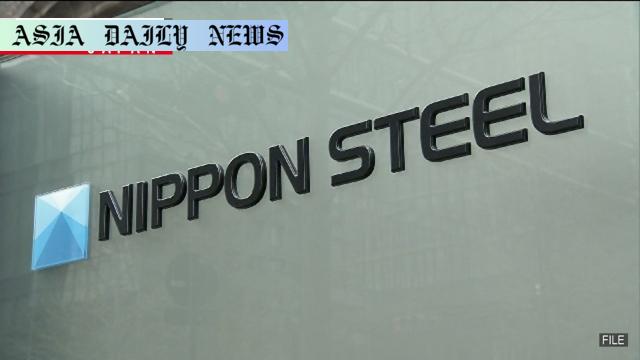Nippon Steel declines to comment on Trump’s remarks about US Steel acquisition plans.
Nippon Steel declined to comment on Trump’s remarks about its US Steel acquisition plans.
Trump reassured that US Steel will remain American-controlled with partial Japanese ownership.
Japan continues internal discussions to finalize the investment strategies for Nippon Steel.

Nippon Steel Declines to Comment on Trump’s Remarks
The last few days have seen headlines dominated by speculation around the potential acquisition of US Steel by Japanese steelmaker Nippon Steel. However, the company has chosen to stay silent on President Donald Trump’s recent remarks, where he reassured the US public about the deal’s implications. According to Trump, post-acquisition, US Steel is expected to remain effectively under American control. He also mentioned that Nippon Steel would only maintain partial ownership under the proposed terms.
While the Japanese government has taken a similar approach of reticence, its chief spokesperson Hayashi Yoshimasa confirmed that they are closely monitoring the situation. The government stresses that communication and partnership are pivotal, advising private stakeholders involved in the deal to carefully craft investment strategies that align with their mutual interests. Despite the anticipation sparked by Trump’s announcements, Hayashi refrained from fully endorsing the comments until an official statement emerges from U.S. sources.
Strategic Investment Implications
Acquiring partial ownership in US Steel could potentially position Nippon Steel as a prominent player in the global steel market. The strategic move would not only enhance their operational scale but also strengthen the ties between Japan and the United States within the industrial sector. Experts suggest that this partial acquisition could bring mutual benefits to both sides—bolstering US Steel’s capital base, while simultaneously opening up new market opportunities for the Japanese steel giant.
Nevertheless, navigating international deals of such magnitude is fraught with challenges, particularly political and economic considerations. It remains paramount for Nippon Steel and Japan to tread carefully, ensuring that this deal aligns with both national interests and global economic trends.
Future Cooperation and Economic Considerations
The US Steel deal brings to light broader questions about international cooperation in essential industries. If confirmed, this deal may likely set the tone for future investment strategies between Japan and the United States. Both governments aim to foster mutual prosperity while safeguarding the sovereign elements of their respective economic assets.
Experts indicate that Nippon Steel might prioritize environmental sustainability and technological innovation as part of its operational model within the US. This forward-looking approach aligns with the global trend of adopting clean and efficient technologies in heavy industries. The upcoming months promise to keep a close spotlight on the unfolding dynamics of this landmark investment, its potential pitfalls, and its influence in shaping the relations between two economic powerhouses.
Commentary
Nippon Steel’s Investment Discourse: A Global Perspective
Nippon Steel’s potential acquisition of partial ownership in US Steel serves as an intriguing example of global corporate strategy. It underscores a recurring theme in today’s interconnected world: the interdependence of nations even in industries considered staples of national identity, such as steelmaking. With this deal, a broader image emerges of how historical rivals can become future allies in adapting to shifting global economic tides.
Impacts on Bilateral Relations
The move bears significant implications for Japan-US economic ties. It demonstrates a concerted effort to deepen relationships not just through trade but shared ownership of assets. For policymakers on both sides, this kind of partnership could serve as a framework for fostering stronger dialogues and cooperative approaches to other pressing sectors such as technology, infrastructure, and energy. Beyond headline-grabbing deals, the underlying emphasis on innovation and sustainability could set remarkable precedents.
Balancing Sovereignty and Collaboration
However, the complexities are abundant, especially when a foreign entity stakes a claim in a key American industry synonymous with national strength. Nippon Steel must tread a fine line, ensuring its operations respect US sovereignty while also meeting global sustainability goals. Similarly, trust-building exercises remain an important focus for both Japanese and US stakeholders involved in sealing the deal.
Ultimately, the Nippon Steel acquisition attempt brings not just financial repercussions but social, environmental, and strategic considerations to the fore. Business professionals and policymakers alike should take note of these lessons to shape business narratives of tomorrow.


